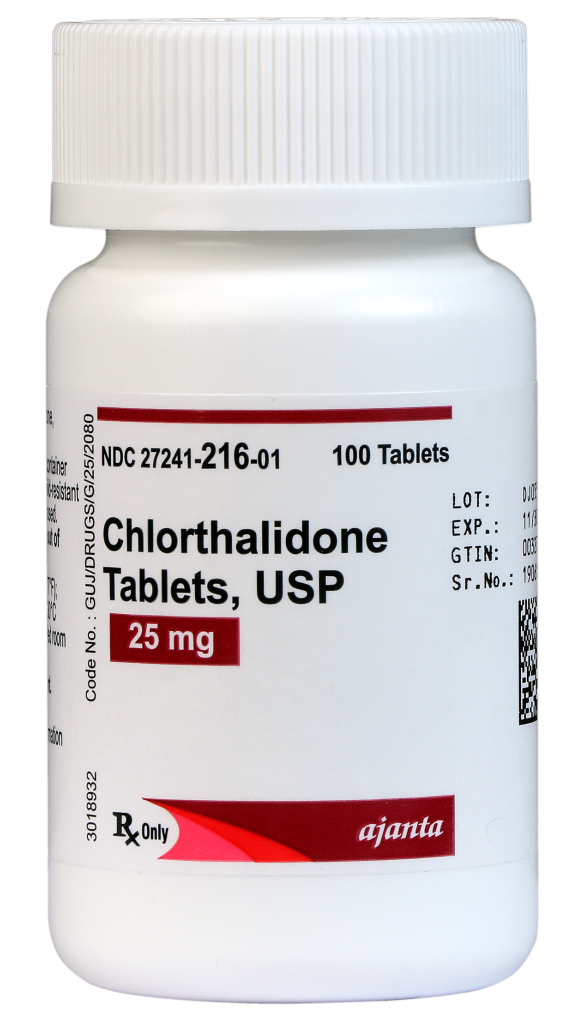What Is Chlorthalidone Used For

Chlorthalidone, a thiazide-like diuretic, is primarily used to treat conditions that involve excess fluid in the body, such as hypertension (high blood pressure) and edema (swelling caused by excess fluid). It works by increasing the amount of urine produced by the kidneys, which in turn helps to remove excess fluid and salt from the body. This mechanism of action is crucial in managing and reducing blood pressure, as well as alleviating symptoms associated with fluid retention.
Hypertension Management
One of the primary uses of chlorthalidone is in the management of hypertension. High blood pressure is a condition that can lead to serious cardiovascular diseases, including heart attacks, strokes, and kidney disease, if not properly managed. Chlorthalidone helps to lower blood pressure by reducing the volume of fluid in the blood vessels, which decreases the pressure against the vessel walls. Its efficacy in managing hypertension, combined with its long duration of action, makes it a preferred choice for many patients.
Edema Treatment
Edema, characterized by swelling due to excess fluid trapped in the body’s tissues, can be caused by a variety of factors including heart, liver, or kidney disease, as well as certain medications and pregnancy. Chlorthalidone is used to treat edema by promoting diuresis (the production of urine), which helps to eliminate excess fluid from the body and reduce swelling. This is particularly beneficial for patients experiencing discomfort or mobility issues due to edema.
Other Uses
While its primary uses are for hypertension and edema, chlorthalidone may also be prescribed for other conditions that benefit from its diuretic effects. For example, it can be used in the management of certain types of kidney disease to help reduce proteinuria (excess protein in the urine), a marker of kidney damage.
How Chlorthalidone Works
Chlorthalidone’s mechanism of action involves inhibiting the reabsorption of sodium and chloride in the distal convoluted tubule of the kidneys. This inhibition leads to increased excretion of sodium, chloride, and water, resulting in a diuretic effect. Unlike some other diuretics, chlorthalidone has a prolonged duration of action, which allows for once-daily dosing and improves patient compliance.
Benefits and Considerations
The use of chlorthalidone offers several benefits, including its efficacy in lowering blood pressure and reducing edema, as well as its convenience due to its long-acting nature. However, like all medications, chlorthalidone can have side effects, such as increased urination, dizziness, and changes in electrolyte levels. It’s also important for patients taking chlorthalidone to monitor their blood pressure regularly and follow a diet that is low in salt and rich in potassium to minimize potential side effects.
Conclusion
Chlorthalidone is a valuable medication in the treatment of hypertension and edema, offering a long-acting diuretic effect that helps manage these conditions effectively. Its use must be carefully monitored by healthcare professionals to ensure that it is prescribed appropriately and that patients are aware of its potential side effects and interactions. With proper management and patient education, chlorthalidone can be a safe and effective treatment option for those who need it.
Frequently Asked Questions
What is the primary use of chlorthalidone?
+Chlorthalidone is primarily used to treat hypertension (high blood pressure) and edema (swelling caused by excess fluid).
How does chlorthalidone work?
+Chlorthalidone works by inhibiting the reabsorption of sodium and chloride in the kidneys, leading to increased excretion of sodium, chloride, and water.
What are the potential side effects of chlorthalidone?
+Potential side effects include increased urination, dizziness, and changes in electrolyte levels. Patients should monitor their blood pressure and follow a diet low in salt and rich in potassium.
How often should chlorthalidone be taken?
+Due to its long-acting nature, chlorthalidone can typically be taken once daily, as directed by a healthcare provider.
Can chlorthalidone be used for other conditions?
+Yes, chlorthalidone may be prescribed for other conditions that benefit from its diuretic effects, such as certain types of kidney disease.



